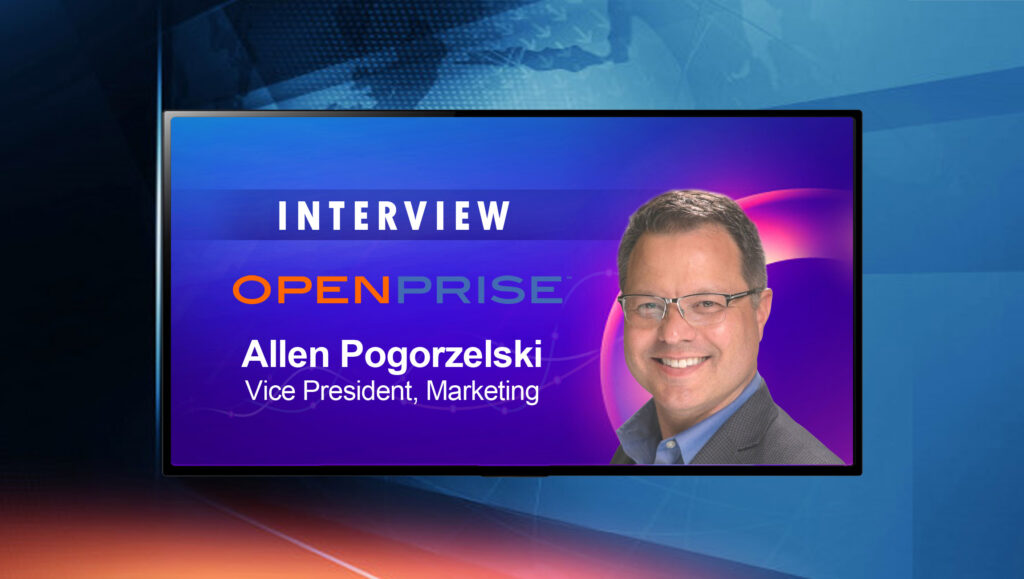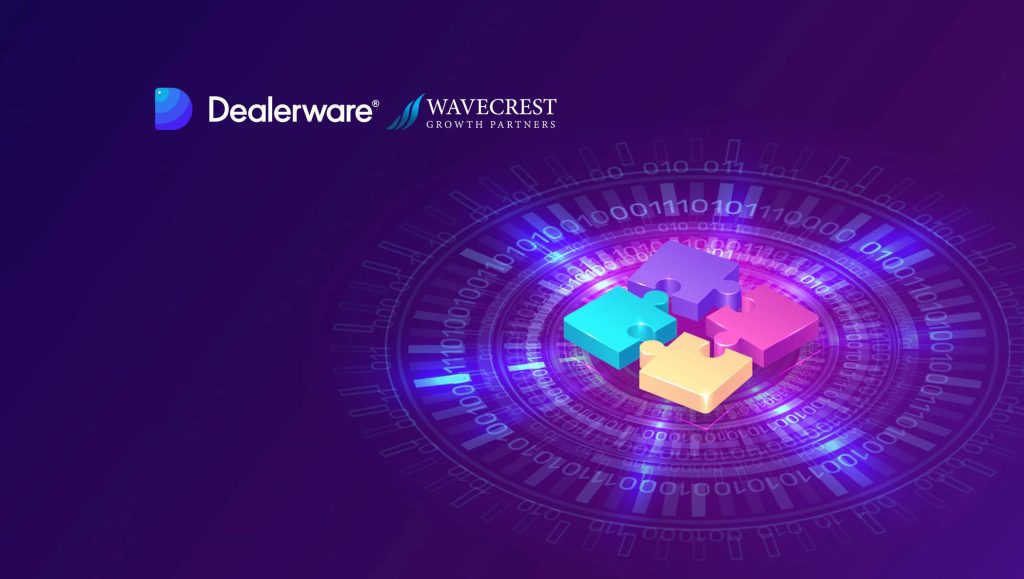In an information-rich digital world, where buyers can learn more about products themselves rather than speaking to sales reps, what does it take to keep a growing connect with potential buyers? Allen Pogorzelski, Vice President, Marketing at Openprise talks about the changing roles in sales and RevOps in this chat: _____ I started my career off working as a sales engineer for a business intelligence company in the early 90’s. Back then, I used to get a data set from a prospect and then turn around a custom demo the next day that would show them how they could gain new insights by drilling down on their data and rotating how it could be visualized (this was before Microsoft Excel had pivot tables). Back then, in my hotel room, I’d spend a few minutes setting up the views, but the vast majority of time was spent manually cleaning up the data. 30 years later, the UIs of these solutions have improved, but sales engineers in business intelligence are still doing exactly what I used to do—manually cleaning up their data. Data quality has only gotten worse as more tightly integrated RevTech stacks now have APIs that connect more solutions, which, in turn, are polluting the data across a stack. Sales engineers building data-driven demos today have an even tougher time that I did back then. Later in my career, I moved into marketing roles at CRM companies like Oracle and Siebel, and led marketing at Selectica, CipherCloud, and currently at Openprise, which provides data orchestration solutions for sales and marketing teams. A typical salesperson’s role has changed dramatically since I first started my career. Back then, salespeople had immense power controlling the flow of data. If a prospect wanted to learn anything at all about a solution, they had to go through a rep. Today, a sales rep’s world is different. Prospects are now far more educated before they ever have their first conversation with a rep. Most prospects can see at least a short online demo, get some idea about pricing, read all about others’ experiences with a product on sites like G2, and do a few backchannel references by matching customer logos on a vendor’s website with connections on LinkedIn. The value a salesperson provides isn’t in controlling the flow of data in return for information. It’s more as a trusted resource that can paint the picture for how a product can be an integral part of that prospect’s vision of the future. If you ask me, it’s a much more interesting, challenging, and fulfilling role. Read More: SalesTechStar Interview With Scott Yelle, Chief Sales Officer At Vivantio Marketers at Openprise have a different role than at many other companies I’ve been a part of. We’re growing at an incredibly fast rate, even during COVID, and everyone works closely with Sales and our Customer Success teams. Most of us spend a lot of time on projects that aren’t in our core areas, and I think that’s a big plus—people are constantly learning and taking on new challenges. We’ve got a lot of very smart, passionate people at Openprise, and they love to build new things. That’s one of the reasons we keep winning Inc. Magazine’s Best Workplace award year after year. People really like it here, and they like the constantly changing, challenging environment. As you know, we make data orchestration solutions here at Openprise, and because we eat our own dog food in improving data quality (standardization, dedupe, enrichment, lead to account matching) the data my team works with is better than 99% of what other marketers have to work with, so we can be much more targeted than our competitors. Because our data is so clean, and we use our own app for attribution, we also know what works, and I can make more aggressive campaigns investments. I’m not afraid to invest $1,000 CPL (Cost per Lead) on some proven programs because I know the revenue and ROI those kinds of programs deliver. One of our most effective programs over the past year is ABM. Because we have such good data, we do a really good job of selecting companies and contacts that meet our Ideal Customer Profile (ICP) and we’ve been really effective at tracking how each step in our playbook is performing, while also constantly testing new offers. Right now, ABM delivers 25% of our new business pipeline, and that’s primarily because we’ve automated so many of our processes with Openprise. By far the #1 mistake I still see companies make over and over again is that they continue to buy solutions from different vendors to solve a given challenge without any regard for the underlying data that those solutions require to be successful. For example, if you want to do better lead routing, you might buy a solution for that. But that project is likely to fail if you have a bunch of duplicate leads and contacts with multiple owners. Or if you haven’t normalized data across the key fields you’re going to route by. Or if you haven’t established clean account hierarchies—if you want to do routing by account ownership. We see the same with attribution projects, segmentation projects, and personalization projects—if you don’t have a firm data foundation, none of your new data-driven programs will be very successful. Read More: SalesTechStar Interview With Michael Kotchish Director, Global Business Development, For GetApp /… I think buyers are much smarter than they were a few years ago, when companies’ RevTech stacks were exploding with buyers that wanted “one of everything” in their stacks. Modern buyers are starting to look more at end-to-end business processes, and what’s needed in the entire process, rather than the “shiny new object.” This is a good thing. It means more successful projects. What’s really exciting about today’s red-hot market for RevOps professionals is that we can pretty much work wherever we want—there’s huge demand for our skills. That also means that there’s no reason to stick around at a company that you’re not excited to be at day in and day out. I think that leaders’ focus needs to be on hiring great people that really love the space they’re in and what they do. In those cases, people are already motivated, and managers just need to focus on ensuring that their teams are pointed in the right direction, and try to stay out of the way. In terms of the systems and processes to support sales and marketing technologies, there are two areas where I believe leaders need to focus more attention: data and training. As I’ve alluded to before, there’s no sense in launching a new technology without understanding the underlying data and processes they need to be successful. This is the #1 reason I see really exciting new technologies fail. No one should ever buy a sales or marketing solution without knowing exactly what those solutions need to be successful and what kind of data quality is needed to support it. Very few vendors will stop you from buying a product because your infrastructure can’t support it. Buyer beware. The second thing is training—over and over again, I see companies buy some really promising solutions, but they’re owned and operated by one person. When that person leaves—and turnover is through the roof these days—especially in RevOps roles, then those solutions tend to fall apart in a matter of days and weeks. Having trained people ready to take over is absolutely critical, and in the long run it will save the company a lot of money so those products can continue to deliver value in increasing revenue. Read More: SalesTechStar Interview With Pouyan Salehi, CEO And Co-Founder Of Scratchpad The Openprise RevOps Performance Platform elevates RevOps into a performance multiplier by orchestrating data, processes, and interactions to improve the performance of every go-to-market initiative. Openprise is a single, no-code platform that can help to simplify even the most complex RevTech stack. Allen has over 20 years of experience with marketing and sales technologies and business analytics. He has led marketing at several high-tech companies including Openprise, Selectica, and CipherCloud. He has also led demand generation teams at Jasper and diCarta, and managed product marketing for sales solutions at Oracle and for marketing solutions at Siebel Systems. Hi Allen, we’d love to hear about your journey in sales and marketing through the years…how are you seeing the role of the typical salesperson in this market change…
Take us through a typical marketing day at Openprise?
We’d love to hear about some of your top data-driven (marketing and sales) strategies that have proven success at Openprise and through the years?
Can you talk about some of the top data mistakes you still see marketing and sales leaders make while planning campaigns and using data to drive results and plans?
How according to you will the future of salestech and martech evolve to meet today’s business challenges?
A few thoughts on what you feel today’s sales leaders need to do to motivate, train and uplift their teams to optimize business and sales performance, and the sales technologies and marketing technologies you feel sales and marketing teams should have more of?

How should you be revisiting your martech and overall tech stack in 2021?
Catch our latest episodes of the SalesStar Podcast where industry leaders from Couchbase, Planful and 6sense weigh in!





















